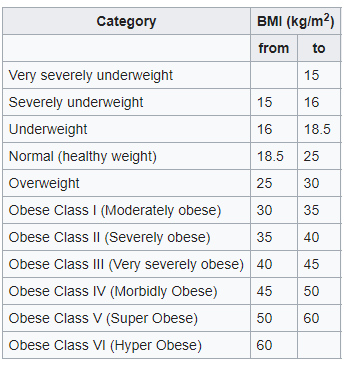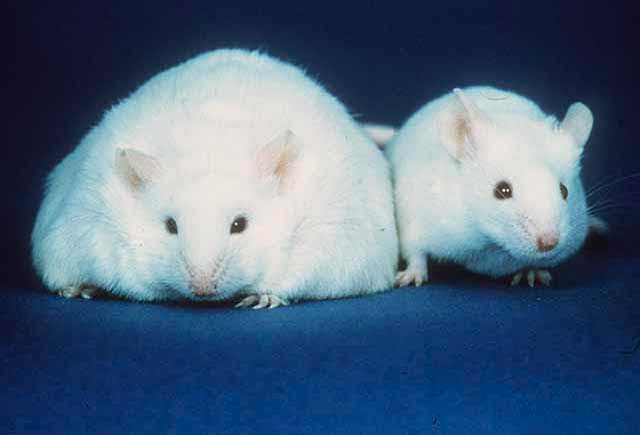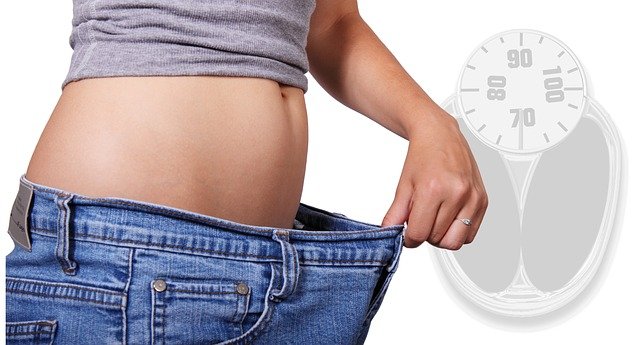Breaking down obesity: Why dieting sucks?
Introduction:
Hello everyone, I hope you are all doing fine!
In the past, food was scarce, humans were used to struggling to find something to eat, we would run several miles chasing a prey and agriculture wasn't very developed at the time, significant efforts were done to achieve insignificant results. With time, we've learned to manipulate many technique and methods to ensure the disponibility of this basic need. Nowadays with a click of a button, you can have a pizza delivery at your house, there is no longer a balance between physical activity and food intake, the result is an ever-increasing rate of obesity every year. More than 2.8 million people are dying each year due to obesity complications, from major cardiovascular diseases such as strokes and heart attacks to minor metabolic dysregulation such as diabetes and hypothyroidism.
Many obesity treatments are available today, they rang from natural unharmful procedures (Diets) to more aggressive alternatives (surgery and medication).
I have a friend who has suffered from extreme obesity for a long time, he couldn't stand people's harsh judgments, they kept calling him names and made fun of him beside his back, his life was simply a living hell so he tried every possible diet and visited multiple practitioners but every attempt ended up with a complete failure. After years of struggle, he finally chose the easy way around and had a gastric bypass to free himself from his misery, now I can see clearly that it was the best choice of his life!
For today's topic, we're going to discuss obesity and dieting from a pathophysiological perspective and I will explain why dieting is harder than it looks and why people keep failing at it.

Understanding obesity...
When you eat a meal, your digestive system decomposes it into smaller, basic molecules for easier absorption (small pieces of carbohydrates, proteins, and fats). Minutes after, your blood sugar levels spike up, your pancreas then starts releasing insulin reserves to control it in the short term and at the same time Beta-cells secrete more and more insulin for a long-term control. The majority of glucose in the blood is transformed to long chains of glycogen,for later uses, preserved mainly in the liver but also a small portion in the muscles. What happens if there is a lot of sugar molecules? well, you guessed it right, they will be transformed into fatty acids throughout a metabolic pathway called lipogenesis.
Obesity occurs when there is an excess of body fats in the body, according to World health organization (WHO), a person is considered obese if his body mass index (BMI) exceeds 30 kg/m2. BMI is calculated by dividing the weight (in Kilograms) by the square of height (in meters), simple right? If you want to check yourself just do the maths and see the results.

Body mass index interpretationSource: Wikipedia
BMI is a good parameter to predict the health state and prognosis of a person but it's not totally reliable !, it has some flaws.
Obesity has many types, gynoid obesity, abdominal obesity, mixed obesity etc, it all depends on the distribution of fats in the body. The most dangerous type of them all is abdominal obesity because this region is very vulnerable as it contains many vital organs, it's estimated from calculating the abdominal circumference.
In the beginning, fats are stocked in the subcutaneous adipocytes (belly fat), after a while, they start infiltrating internal organs, a condition called visceral obesity (VO). Visceral obesity leads to a dysregulation of the liver and the pancreas (VO is the biggest risk factor to develop type 2 diabetes) and this is because fats interfere with the normal functioning of hepatocytes and beta cells, thus leading to what we call metabolic syndrome which is a variety of conditions that tend to occur together (high blood sugar, increased blood pressure, belly fat, high cholesterol).
Obesity is without a doubt a risk factor to many diseases but being skinny doesn't mean necessarily that you are fitter than an over-weighted person because figuring out this question is hard, it depends on the physical condition, aerobic fitness, age, biological markers, visceral fat deposits etc.

Junk food causes obesity, True or false?
What do you think ? is it true? Mark Haub, a nutrition professor from Kansas state university wanted to prove to his students that obesity is only related to caloric imbalance so he did an amazing experience. He spent 10 weeks on junk food (twinkie, chips, chocolate, doughnuts..) but at the same time running a caloric deficit of 800 Kcal. His BMI dropped from 24.9 down to 28.8 kg/m2, but still, he needs a further loss to achieve his ideal weight.
A little useful tip: to find your ideal weight, you can use this method:

Source: Own work
What's more outstanding in this experience is that Mark's blood levels of cholesterol and triglycerides dropped significantly! As you probably know, High levels of fats are correlated with an increased risk of cardiovascular diseases and a shorter lifespan. So Mark actually lost weight using an unhealthy procedure and he became healthier? Think about that for a second...
It makes us wonder, what's unhealthy anyway? How can we define it? If the biological markers were improved, so does that make the whole procedure actually healthier than we thought?
Anyway, the whole point of this experience was to prove that obesity is only caused by excessive caloric intake and nothing else, he said and I quote:
It doesn't matter where the macronutrients are derived from as long as essential nutrients are consumed at the recommended levels, and the fuel is consumed at a level at or below energy expenditure.
Every living cell in our body and every organ consumes energy to survive, it's an absolute necessity. Nutritionists calculate this energy contained in food using the unit calorie, we've been taught that 1 g of protein and carbs is equivalent to 4 KCal and 1 g of fats is equivalent to 9 Kcal, although theoretically, this is true but also over-simplified because the body works in many mysterious ways. (Just follow me to understand)
The caloric balance is defined by Ins and Outs, Ins are the daily caloric intake contained in the food we eat, outs are the expenditure. You see, we spent energy on 4 different things:
- Basal metabolic rate (BMR): This is the minimal energy required to survive, it's why your heart beats, your diaphragm contracts, your temperature stays around 37 Celsius and your brain thinks. There's a slight difference between individuals from the same age in term of BMR but nothing big really, BMR fluctuates with the lean mass because maintaining muscles require more energy, what does this mean? It means that as we grow old, our lean mass decreases so as our BMR.
- Energy spent on daily unconscious activity: This category accounts for activities like talking, doing facial expressions, urinating, fidgeting etc. In fact, I remember a doctor who said that fidgeting is really underrated because there are many people, which are less active by nature, struggle to lose weight, highlighting the role of being more talkative, noisy and fidgety.
- Energy spent on digestion: You know that right ? to digest your food, your stomach, pancreas, intestines, colon, all work together using kinetic energy and chemical energy (mostly enzymes). That's why 500 Kcal chocolate doesn't provide you with an extra 500 Kcal, besides subtracting the energy needed for its own digestion, some energy is consumed by the microbiome and a little part is wasted in the feces, sucks, isn't it? In fact, some practitioners believe that there are negative calories foods, they believe that the digestion of these food costs more than their caloric value. Although this seems possible, there is no real evidence but what not trying a cold cup of water in the early morning?
Let me know if you have any info about the subject
- Energy spent on important physical activities: Such as walking, running, weight lifting or any other activity that requires a considerable amount of energy. This is the fastest way to burn those calories but the sedentary lifestyles of nowadays don't seem encouraging at all.

Leptin/ghrelin (The Yin and Yang)
During my research on hunger/satiety hormones, I got confused because there are just too many of them.

Source: Own Work
Luckily for me (and you) our main topic is obesity so this is why I narrowed them down to two most important hormones implicated in long-term actions: Leptin/Ghrelin.
I call them the Yin and Yang because they work in such an amazing harmony!
So let's do a quick recap on the regulation of hunger, you see there's a small structure in the center of your brain called the hypothalamus, the arcuate nucleus (AR) is a small part of it and it's the main orchestral conductor for the human appetite.
AR receives many signals from different systems, insulin from the endocrine system as it spikes up after a good meal, Ghrelin and cholecystokinin (CCK) from the digestive tract, and finally leptin from adipocytes. It's up to the AR to receive all this information, process them and sends a clear message to the cerebral cortex to tell if the person is hungry or not.
Now Ghrelin is the main hunger hormone, it's produced by specific cells in the gastrointestinal tract.
When the stomach is empty, the secretion begins, Ghrelin blood levels increase dramatically and they reach the central nervous system trespassing the blood-brain barrier where they exercise their action on the AR.
On the contrary, when the stomach is full, the distension causes an inhibition of the production of ghrelin and the blood levels drop down, =no hunger
Leptin, on the other hand, is more of a long-term regulation hormone, it's secreted by adipocytes and gives us a general idea about the fat storage and the available energy in the body which means more adipocytes=more leptin! It acts by:
Suppressing the release of neuropeptide Y, which in turn prevents the release of appetite enhancing orexins from the lateral hypothalamus.
Leptin is an important hormone to keep track of our weight and achieve a stable one, otherwise, we will totally lose control!
These pathways are so simplified, the truth is hunger and satiety are regulated by many other factors including other hormones ( directly or indirect), psychological factors (we tend to eat more when we pay for our food), emotional factors (we eat less when we are sad) and all the other factors that controls appetite (disponibility or not of the food itself, visual messages, social gatherings, luxury lifestyles etc.)
This complex phenomenon cannot be quantified, we cannot say that someone is 90 % hungry or full, many people have some tendencies to eat more or less just because they feel like they could, for those who wish to lose some weight dealing with the psychological factors is as important as dealing with caloric intakes.

Pathophysiology of obesity
After understanding the basic concepts about caloric balance and weight regulation, finding out why some people are obese isn't hard. Obesity is a chronic complex disease, most of the times, due to an excessive eating behavior and a lack of physical activity, genetics may also play a significant role as some people seem more predisposed to obesity than others. Researchers established a relationship between leptin and obesity onset, any anomaly or mutation in the gene responsible for leptin production can lead an exaggerated hunger and an unstoppable appetite which means eventually hyperphagia and obesity, just look at this poor mouse which suffers from leptin gene dysfunction:

At the right: A mouse unable to produce leptin, At the left: normal mouse (Source: ornl.gov)
Studies on humans found that some cases of obesity are correlated with low levels of leptin despite the excessive fat deposits, probably due to a gene mutation. Other cases are characterized by high levels of leptin but associated with leptin resistance, just like diabetes type 2, the body doesn't respond efficiently to these hormones. The cause of this resistance is not very clear but it seems a result of modified receptors in the hypothalamus, it's generally acquired after several years of crappy lifestyles or in rare scenarios inherited from the parents.

My friend eats so much and he is skinnier than me!
We all have that type of friend, haven't we? I read an epidemiologic study a couple of months ago, it discussed how people tend to under/overestimate their caloric intake. If you are skinny than good chances you are thinking that you eat well and vice versa (Sorry I forget where but I'm sure of the info). Energy is always conserved, a calorie is always a calorie no matter what, it cannot be dished, that's the first law of thermodynamics, but the quality of the food also interferes with the outcome, here's a small example:
Let's take 100 g of proteins (400 Kcal) and 100 g of candy (400 Kcal), now which one gives us more energy and why ?
Both contain 400 Kcal but the outcome will not be the same because of a couple of reasons.
Digesting proteins requires more energy than sugar molecules, sugars are easily absorbed compared to proteins but a small quantity of them is dedicated to the gut bacteria, in addition, the two macromolecules don't affect the hormones the same way! While proteins lead to faster satiety, fructose which is contained in large proportion in industrial sugary doesn't decrease Ghrelin levels enough, basically, you become more full with proteins but still hungry with candy, this leads to different eating behaviors later. Although Pr. Mark Haub was right about caloric inputs and outputs, he was wrong about food quality, it does matter !
The food we eat interfere with the hormones in different ways which makes understanding obesity far more complex than we thought. Constitutional factors play also a major role, some individuals have higher BMR than average, while others have a more efficient digestive tract and let's not forget genes which also differ from person to person, some people have higher appetite than normal and cannot be full easily. Just too many factors to consider!

Now the important question, why dieting is so damn hard?
It's estimated that 90 % of people who went on a diet failed the first time. From an evolutionary point of view, we humans hate change, we always want things to stay the way they are especially if they are working well. Whenever we eat a meal, dopamine levels increase slightly and stimulates our reward systems, this sends a signal to our brain telling us that this thing is good for us, make sure to repeat it again in the future, you know survival stuff! This is the first obstacle to overcome, eating less food will release less dopamine leading to a feeling of deficiency, just like the stuff that happens with cocaine but more like a minor form of addiction. Thankfully, in the long and with dedication neuroplasticity can fix this problem for us :D
The second problem begins with the beginning of weight loss, as fat deposits decrease, so as leptin production. Less leptin means less inhibition and therefore an increasing feeling of hunger, our bodies need time to adapt, this is the main reason why most diets fail. Many clinical trials studied the effects of leptin injection in individuals who want to lose weight, as expected the results were fascinating for their course but other problems were noticed, especially drug tolerance, adverse effects, hard application (daily injections) and of course financial costs. It's very promising but not ready yet for clinical use, who knows maybe in the near future we can achieve our ideal weight with a needle!
The other obstacles regarding diets are multiple, they are related to an ignorance of the caloric value of certain foods, in fact, it was approved that people who keep track of their daily consumption are more likely to succeed. The unhealthy food everywhere is also to blame, just look at this tasty burger...
.jpg)
Cheese burger (Source: pxhere.com)
A cheeseburger can contain up to 800 calories !
Remember that an average adult needs about 2500 Kcal a day, sometimes diets don't work just because you are eating bad quality.
Even after making sure that all of those things are set, there are some people who still incapable of achieving a good weight, each one of us has what we call a set point, it's a weight range we tend to fall into.
Final thoughts, dieting means adapting changes, it's not all about psychological barriers, there are real hormonal and organic things that are happening! If you are not lucky enough to have good genetics, the process may take time, energy, patience and dedication, so make sure to give it a good fight and always visit a specialist before any blind attempt!
Thank you for your time and sorry if the article was somehow long to read :)
Have a nice day!

Wikipedia links:
For further readings:
World Health Organization (Obesity section), link
Abdominal obesity and metabolic syndrome by Després JP1, Lemieux I, link
Metabolic syndrome by Mayo Clinic, link
Nutrition Professor Loses 27 Pounds On Junk Food Diet In 10 Weeks By Christian Nordqvist, link
Revisiting leptin’s role in obesity and weight loss by Rexford S. Ahima, link
A novel strategy for the use of leptin for obesity therapy by Charmaine S Tam, Virgile Lecoultre and Eric Ravussin, link
Why “Calories in, Calories Out” Doesn't Tell The Whole Story by Kris Gunnars, link
How Can Someone Eat So Much and Still Be Skinny? by Carly Schuna, link

One more thing, Join the @steemSTEM community, A community project to promote science technology engineering and mathematics postings on Steemit.

Also, make sure to vote for the SteemSTEM witness. Simply, go to https://steemit.com/~witnesses and type stem.witness then press Vote and .... Voilà


This post has been voted on by the SteemSTEM curation team and voting trail in collaboration with @utopian-io and @curie.
If you appreciate the work we are doing then consider voting all three projects for witness by selecting stem.witness, utopian-io and curie!
For additional information please join us on the SteemSTEM discord and to get to know the rest of the community!
You said everything: people eat more and more badly, and more and more. Ironically, this is maybe a natural solution to the future of over population? Okay clearly not... but... ;)
You know what's sad @lemouth? While 500 million people are hungry, 500 million others are throwing tons of food daily, we live in a cruel world, we have polluted the environment, endangered countless species, deployed resources and we think we are superior, maybe human extinction is a necessity after all ...
The world is unfair. It has always been. But now, I agree we are reaching extremes :(
Hi @fancybrothers!
Your post was upvoted by Utopian.io in cooperation with @steemstem - supporting knowledge, innovation and technological advancement on the Steem Blockchain.
Contribute to Open Source with utopian.io
Learn how to contribute on our website and join the new open source economy.
Want to chat? Join the Utopian Community on Discord https://discord.gg/h52nFrV
Thank you for this thorough explanation of obesity. There's more to it than overeating.